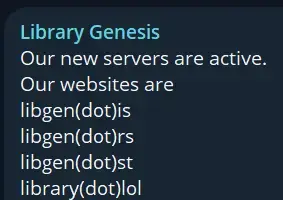clbottomt when the chtopt shows up [imagine this as that popular GIF meme]
antonim
Thanks. It's a part of history I know very little about.
I meant the "for over a hundred years" part specifically, I bolded it but it's not as noticeable as it should be.
the US a terrorist nation for couping democratically elected leader in favour of dictators for over a hundred years
Is this really true?
And that's more or less what I was aiming for, so we're back at square one. What you wrote is in line with my first comment:
it is a weak compliment for AI, and more of a criticism of the current web search engines
The point is that there isn't something that makes AI inherently superior to ordinary search engines. (Personally I haven't found AI to be superior at all, but that's a different topic.) The difference in quality is mainly a consequence of some corporate fuckery to wring out more money from the investors and/or advertisers and/or users at the given moment. AI is good (according to you) just because search engines suck.
Germans excused Holocaust by... saying that it would prevent trans genocide?
This is too stupid even for a troll.
Then, you end up finishing the game
I.e. you do win...
AI LLMs simply are better at surfacing it
Ok, but how exactly? Is there some magical emergent property of LLMs that guides them to filter out the garbage from the quality content?
If you don't feel like discussing this and won't do anything more than deliberately miss the point, you don't have to reply to me at all.
they’re a great use in surfacing information that is discussed and available, but might be buried with no SEO behind it to surface it
This is what I've seen many people claim. But it is a weak compliment for AI, and more of a criticism of the current web search engines. Why is that information unavailable to search engines, but is available to LLMs? If someone has put in the work to find and feed the quality content to LLMs, why couldn't that same effort have been invested in Google Search?









Yeah, totally makes sense, "they" attacked IA one month in advance before the elections, knowing that IA would spend around a month rewriting and improving their site code until the Save Page option would be enabled again (unless IA themselves are a part of the plot???), so that news articles could be "edited on the fly" (with what result?) until the election day, while other similar web archiving services such as archive.is would keep working just fine.